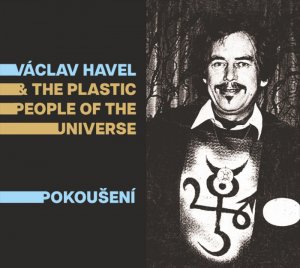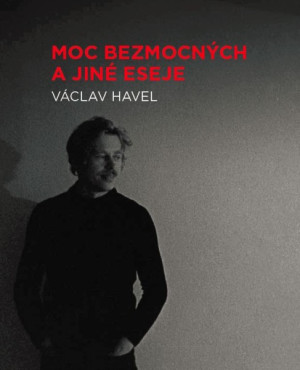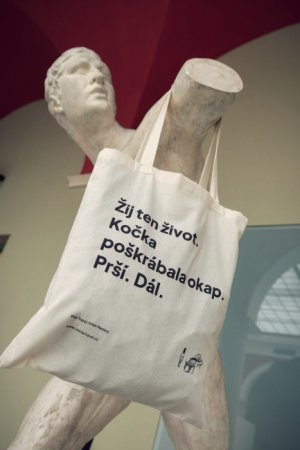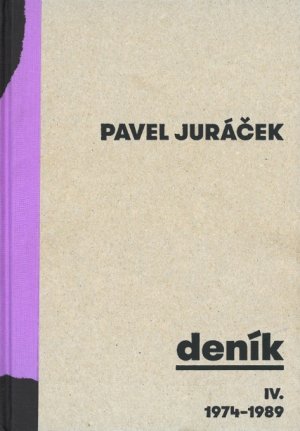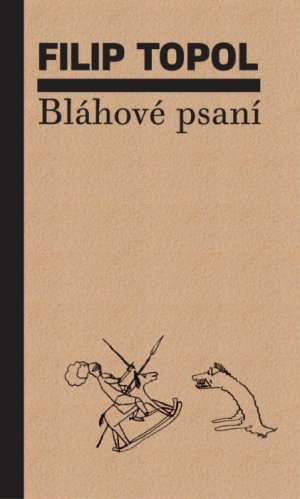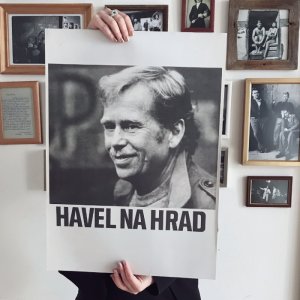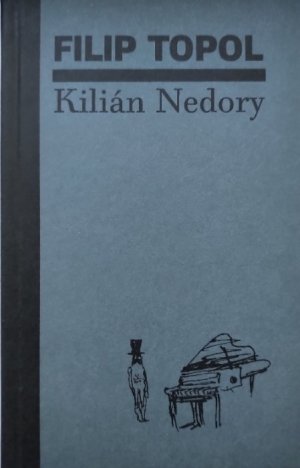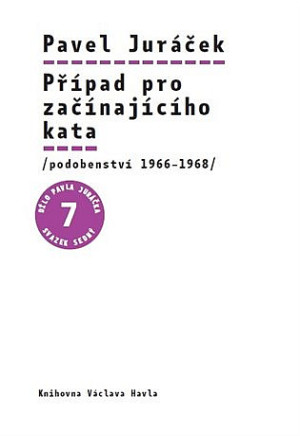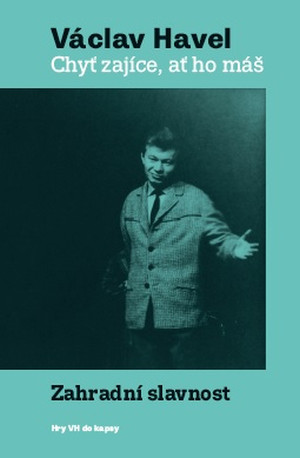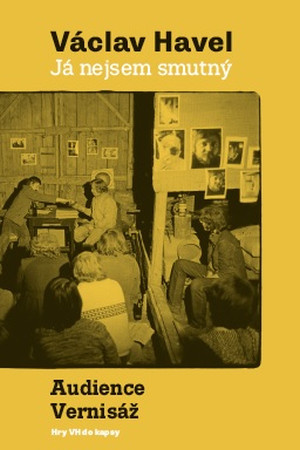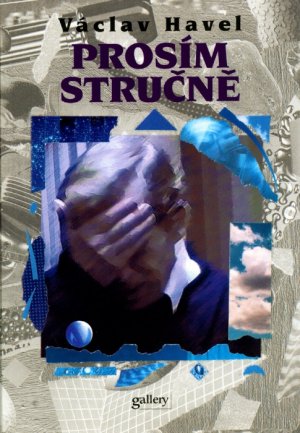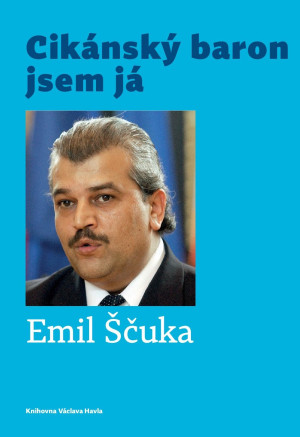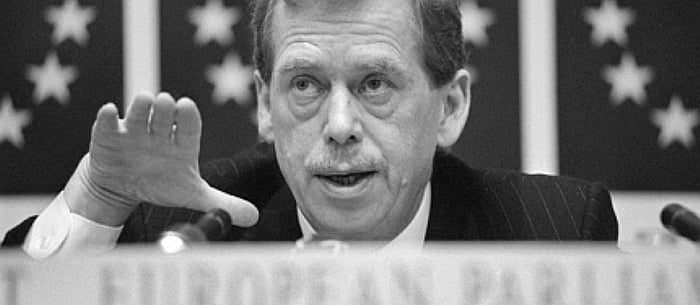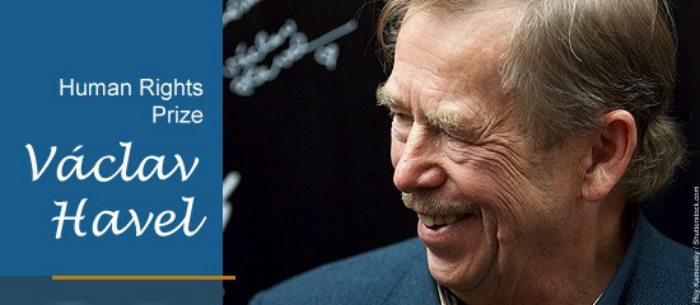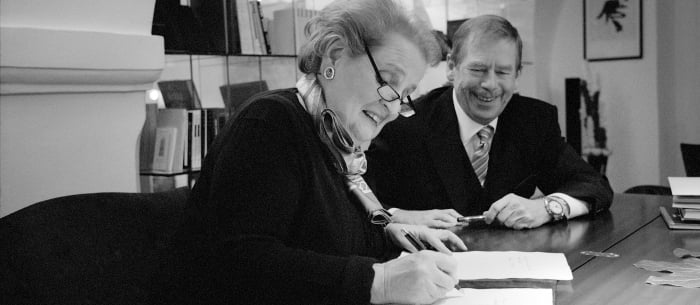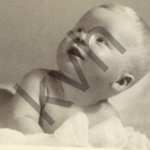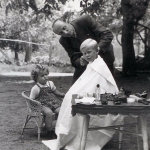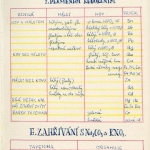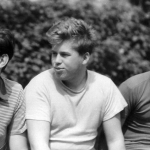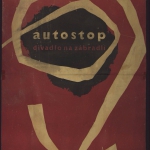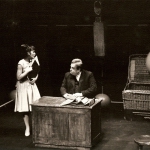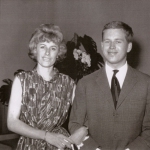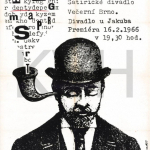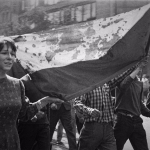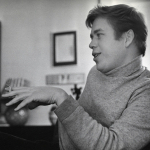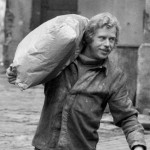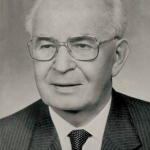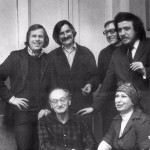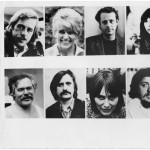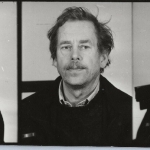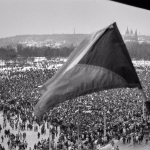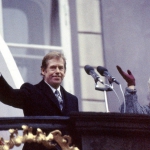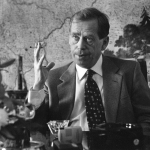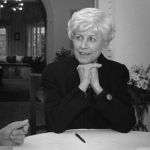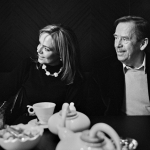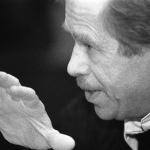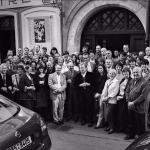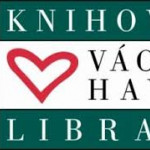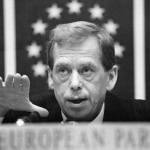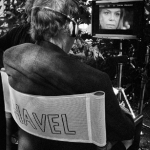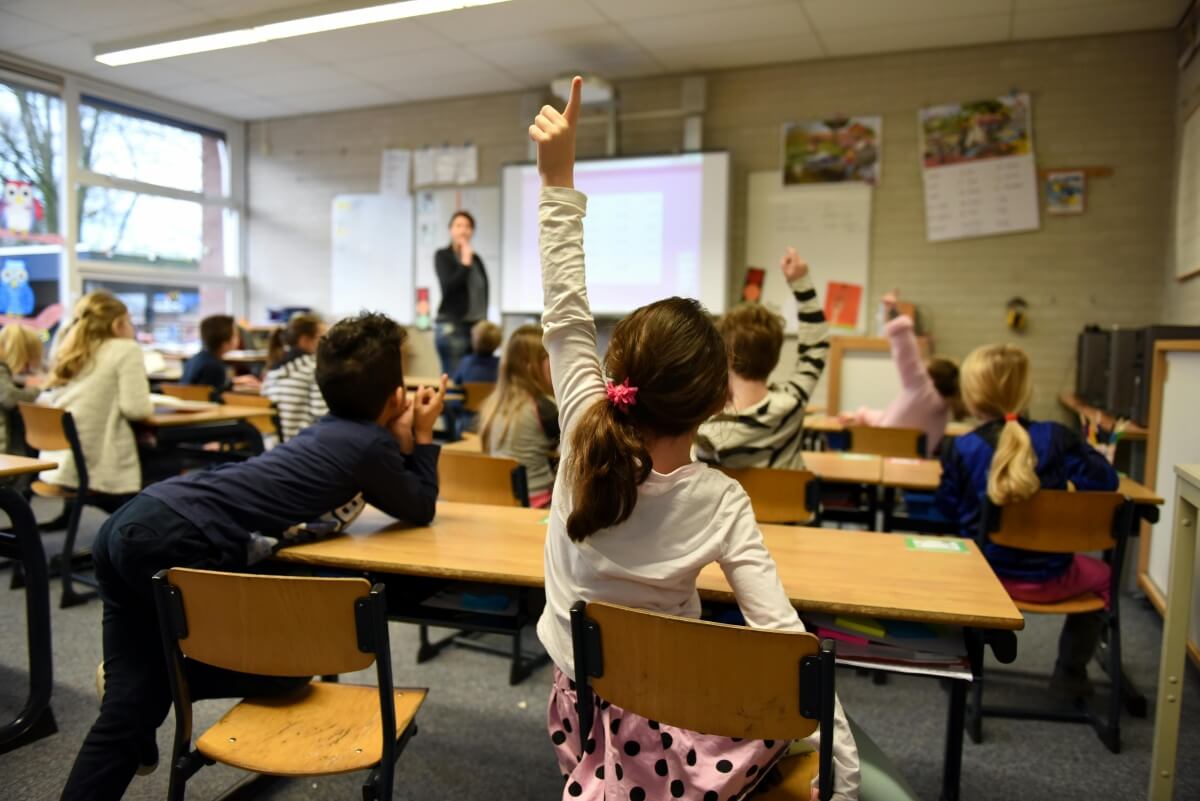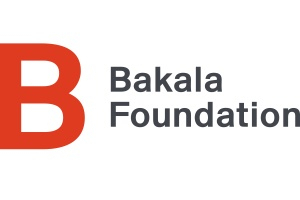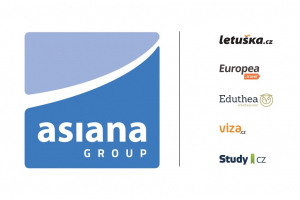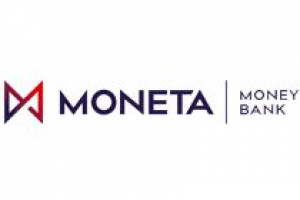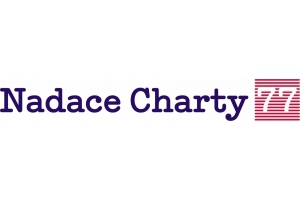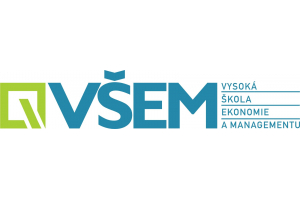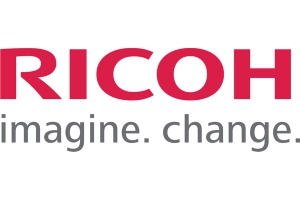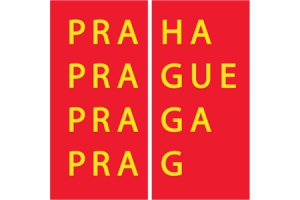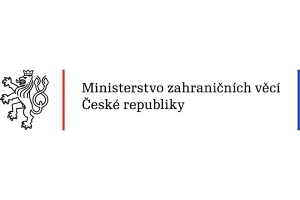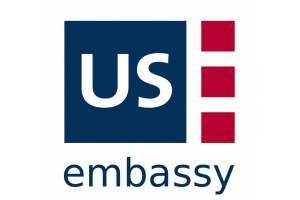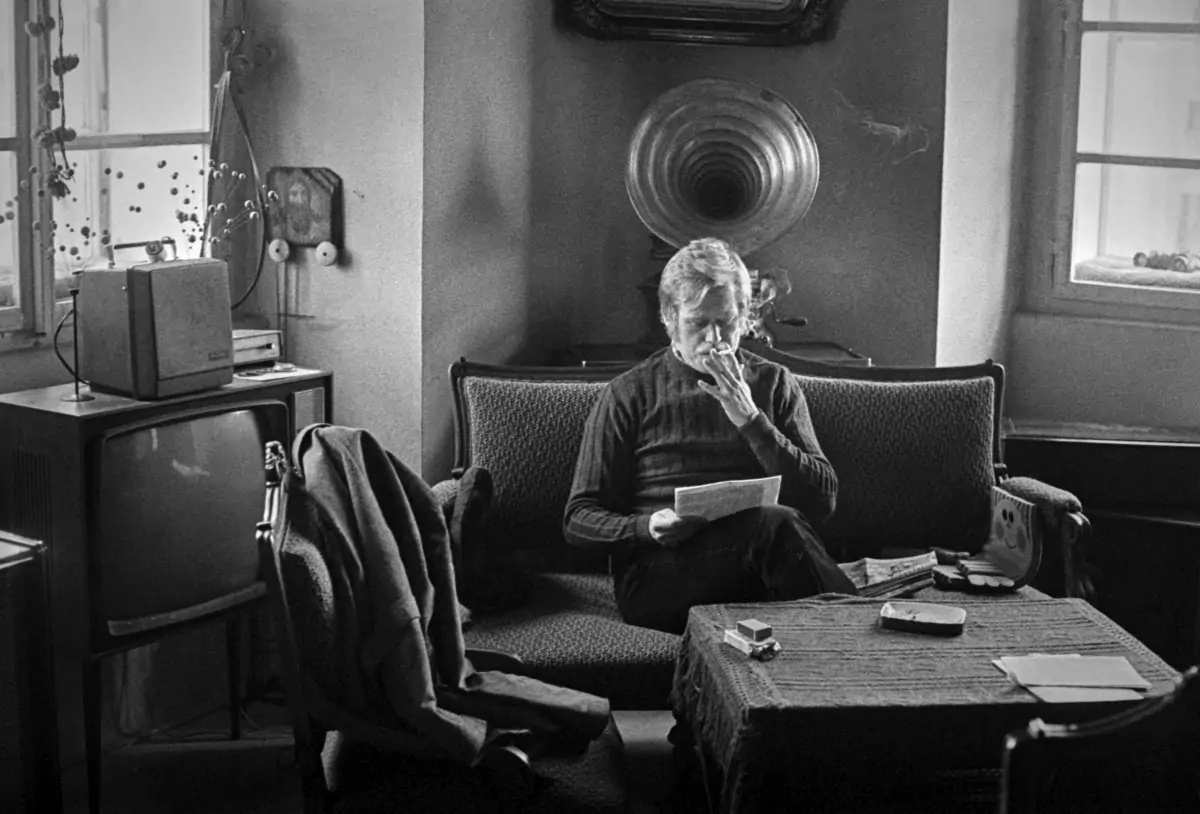
Club / News / Program
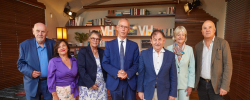
Three candidates shortlisted for the 2023 Václav Havel Prize 05/09/23
The selection panel of the Václav Havel Human Rights Prize, which rewards outstanding civil society action in defence of human rights in Europe and beyond, has today announced the shortlist for the 2023 Award. Meeting in Prague today, the panel – made up of independent figures from the world of human rights and chaired by the President of the Parliamentary Assembly of the Council of Europe (PACE) Tiny Kox – decided to shortlist the following three nominees, in alphabetical order: More
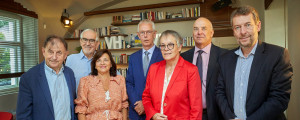
Three candidates shortlisted for the 2022 Václav Havel Human Rights Prize 06/09/22
The discussion among the seven-member jury helmed by the president of the Parliamentary Assembly of the Council of Europe centred on the importance of the issue of human rights during this tense period. The finalists include Vladimir Kara-Murza, a political prisoner and leading Russian democracy campaigner; Ukraine’s 5 AM Coalition, which gathers evidence of human rights abuses stemming from Russia’s invasion of the country; and Hungary’s Rainbow Coalition defending LGBTQIA+ rights. “This year’s selection reflects the central role that human rights play in the current European crisis,” says Michael Žantovský, jury member and executive director of the Václav Havel Library, which bestows the prize in cooperation with the Parliamentary Assembly of the Council of Europe and Nadace Charty 77.
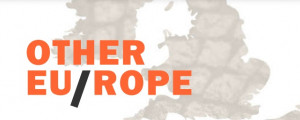
The Other Europe 27/04/22
Dear Friends, After three years we have completed the international project The Other Europe, during which, in cooperation with partner institutions, we have processed and made public recordings of interviews shot in 1987 and 1988 behind the Iron Curtain, and in exile, with important representatives of the opposition and the arts, as well as random citizens. Over those three years we have prepared video, audio and text of 106 interviews in speakers’ native languages and English translation. Despite public health restrictions in the Covid period, we have jointly prepared 16 international conferences and public presentations in six Central and Eastern European states. More
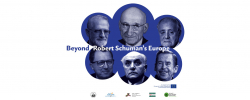
From Schuman to Havel – what next? 16/02/22
The Václav Havel Library is a proud partner of the project Beyond Robert Schuman’s Europe More
Program for October 2018<>
entry-free
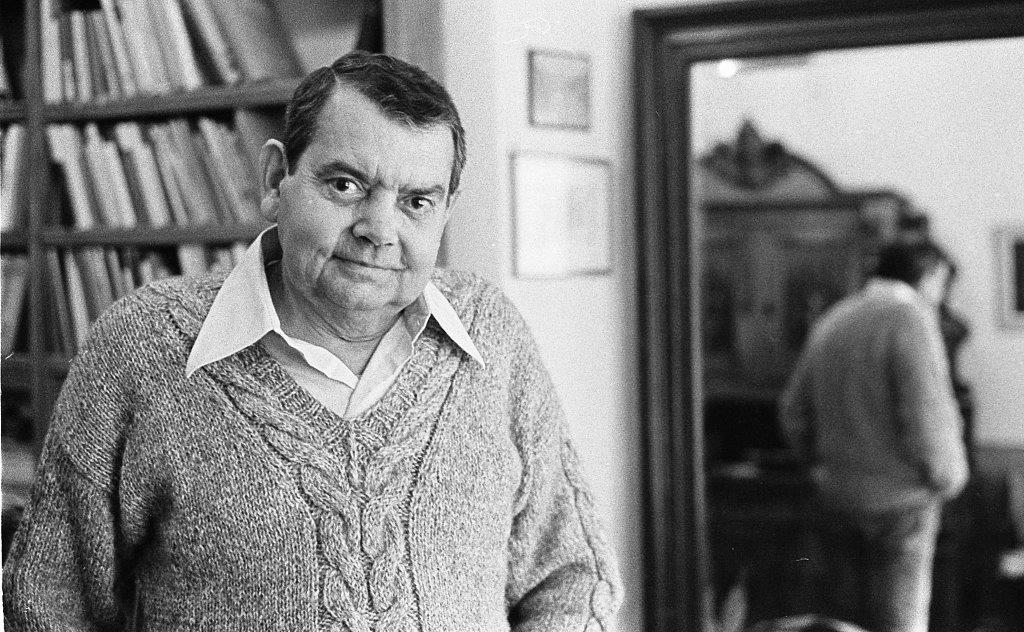
Karel Pecka – The Gulag Constellation
- Where: Václav Havel Library, Ostrovní 13, Prague 110 00
- When: October 1, 2018, 17:00 – 19:00
Presentation of the book Souhvězdí Gulag(The Gulag Constellation), a selection of work by the late writer, political prisoner and dissident Karel Pecka. The evening will also be a get-together of his friends, readers, admirers, fellow prisoners and colleagues held in connection with the 90thanniversary of his birth. There will be recollections of Karel Pecka, songs, poems and readings of excerpts from his books.
Confirmed guests: writer Jiří Stránský, the collection’s publisher Daniel Pagáč, psychiatrist and teacher Cyril Höschl, sociologist Jiřina Šiklová, writer Hana Gerzaničová…
Chaired by publisher Jiří Padevět.
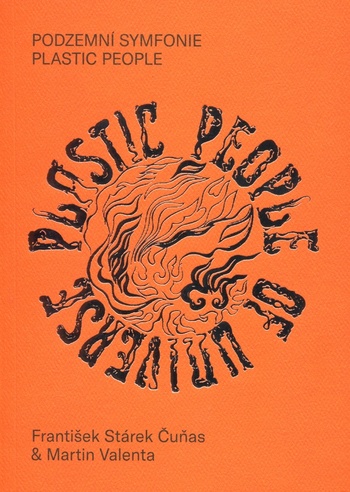
The Autumn Symphony of the Plastic People
- Where: Václav Havel Library, Ostrovní 13, Prague 110 00
- When: October 1, 2018, 19:00 – 21:00
The book Podzemní symfonie Plastic People(The Autumn Symphony of the Plastic People)maps the story of the rock band The Plastic People of the Universe against the backdrop of the political developments of the 1970s and 1980s. It begins with an outline of the group’s history in the years 1968–1976 within the framework of the advent of psychedelic rock in Czechoslovakia and the first stirrings of the concept of cultural opposition. It also analyses the context of the politically focused dissent, primarily Charter 77, and the band’s long-term ties to Václav Havel. This is followed by a look at the formation of Půlnoci and Domácí kapela, trips to the US, efforts to become legal… until the breakup of the group.
The book is a well-informed exploration of the legendary underground band and its time, delivering a great deal that is new while examining well-known facts from hitherto unfamiliar angles.
The book will be presented by its authors František Stárek Čuňas and Martin Valenta along with Vratislav Brabenec and Jáchym Topol. Petr Onufer will moderate their discussion.
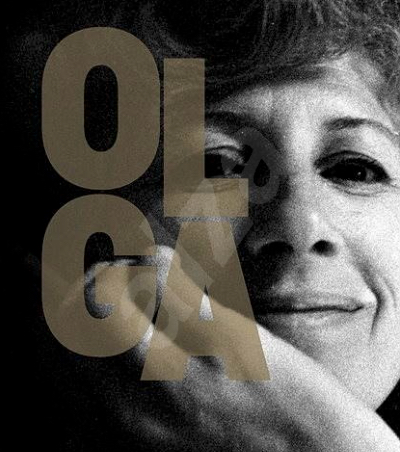
OLGA
- Where: Václav Havel Library, Ostrovní 13, Prague 110 00
- When: October 2, 2018, 10:00 – 12:00
The documentary film Olga (2014, 84 min., Czech with English titles) by the well-known Czech director Miroslav Janek is a portrait of Olga Havlová, one of the most noteworthy Czech women of the 20thcentury. The police couldn’t break her and the Castle didn’t change her. Though she came from a working class background, she became an essential element of the Czech cultural and intellectual world in the 1950s and 1960s, offering critical assessments of her husband’s work and supporting him in the toughest periods following the creation of Charter 77. The film documents Olga’s world and time as well as her highly original outlook.
The film will be screened as part of the COURAGE-PAREVO international festival of documentary films, which is one of the high points of the three-year international research project COURAGE: Cultural opposition – understanding the cultural legacy of dissent in the countries of the former socialist bloc.
For more go to www.cultural-opposition.eu
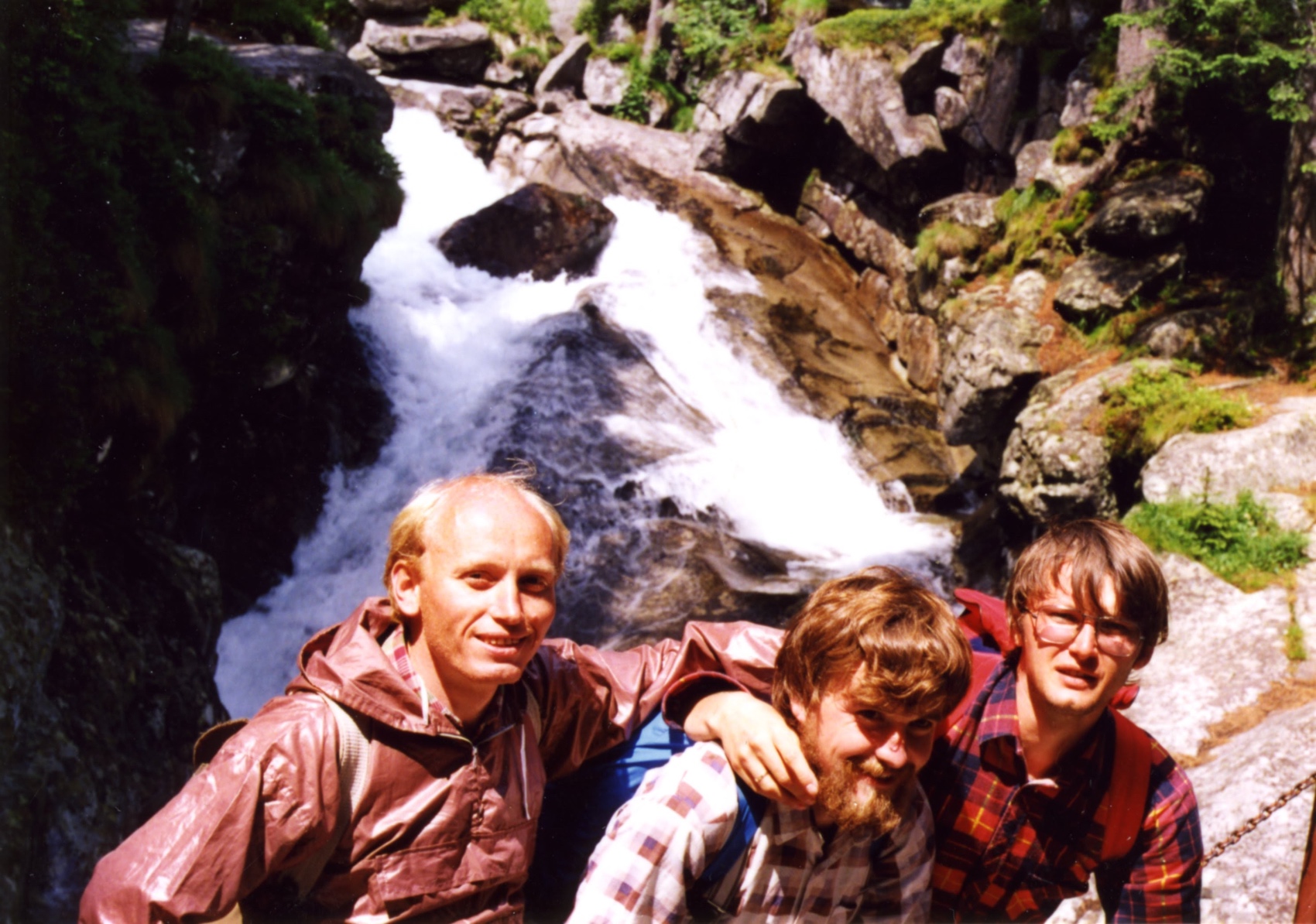
Footprints in the Snow
- Where: Václav Havel Library, Ostrovní 13, Prague 110 00
- When: October 4, 2018, 10:00 – 12:00
Banned literature was smuggled into Communist Czechoslovakia in various ways. One of the toughest physically was carrying dozens of kilogrammes of books from Poland over passes in the Tatra Mountains. It was chiefly religious literature that, with the help of strong young volunteers, reached Slovakia in that way. What happened when a smuggler was caught and arrested? And what was the reaction of Polish border guards, in whose country the circulation of religious literature was most commonplace?
Following a screening of the film Footsteps in the Snow (2105, 53 min., Slovak with English titles) there will be a discussion with the film’s director, Slavomír Zrebný, and Eduard Burget, a cultural historian at the Institute for Czech Literature.
The film will be screened as part of the COURAGE-PAREVO international festival of documentary films, which is one of the high points of the three-year international research project COURAGE: Cultural opposition – understanding the cultural legacy of dissent in the countries of the former socialist bloc.
For more go to www.cultural-opposition.eu
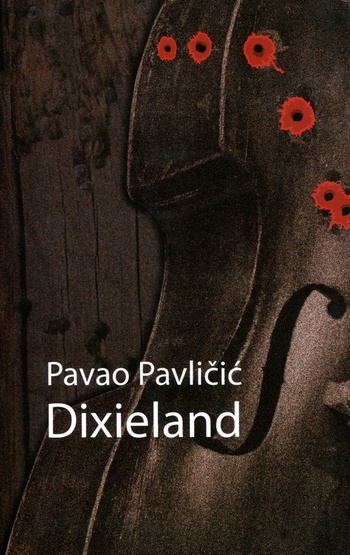
Pavao Pavličić: Dixieland
- Where: Václav Havel Library, Ostrovní 13, Prague 110 00
- When: October 4, 2018, 19:00 – 21:00
Pavao Pavličić is one of the most highly regarded contemporary Croatian writers. His Dixieland– which follows the fates of eight members of an occasional band in Vukovar until a tragic finale in 1991 – is the most noteworthy Croatian novel of the 1990s. In terms of its importance it bears comparison to such works as Günter Grass’s The Tin Drumand The Lost Stepsby Alej Carpentier.
The author will be present for this presentation of the Czech edition of the novel, while it will be discussed by the literary critics Julijana Matanović and Jan M. Heller and the translator Jan Doležal.
Organised by the Václav Havel Library in cooperation with the Runa publishing house and under the auspices of the Embassy of the Republic of Croatia.
Interpretation into Czech provided.
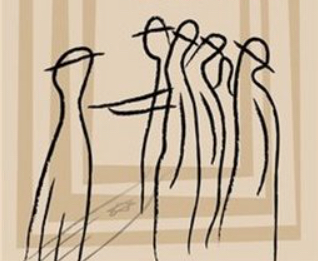
Mihail Sebastian: How I Became a Hooligan
- Where: Václav Havel Library, Ostrovní 13, Prague 110 00
- When: October 5, 2018, 19:00 – 21:00
The scandal sparked by the publication in 1934 of the novel Two Thousand Years/How I Became a Hooliganby the then 27-year-old writer Mihail Sebastian exceeded the bounds of literature and fuelled the anti-Semitic passions of that era. The novel maps in quasi-diary form the events, social climate and atmosphere of Romania’s bohemia between 1922 and 1933. It also attempts to describe and delineate the status of Jews, the position of the individual against the masses and the intellectual against the world and explores the metaphysical subject of solitude. At the same time, this once scandalous and revolutionary book, long a classic, remains strikingly current to this day.
The book and its author will be discussed by translator Hana Herrmannová, philosopher and writer Ciprian Vâlcan and Professor Michael Finkenthal.
Jarmila Horáková and Jiří Našinec will provide interpretation into Czech.
Organised by the Václav Havel Library in cooperation with the Romanian Cultural Institute and the publishers Herrmann & synové under the auspices of the Embassy of the State of Israel.
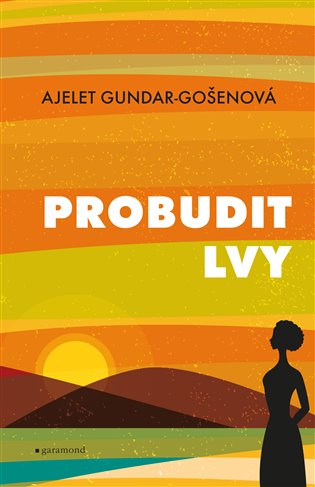
Ayelet Gundar-Goshen: Waking Lions
- Where: Václav Havel Library, Ostrovní 13, Prague 110 00
- When: October 8, 2018, 19:00 – 21:00
How the State of Israel deals with migration.
On his way to Beersheba hospital on an abandoned road Dr. Eitan Green hits a pedestrian. He discovers to his horror that the man is an Eritrean immigrant with no chance of survival and flees the scene. His life is transformed the moment a young black woman, the dead man’s widow, arrives at his door and forces him to provide medical care to African migrants. Green’s fate is in the hands of a beautiful woman who both attracts and repels him. This gripping story about erotic attraction and alienation reveals the darkest corners of Israeli society and the human soul.
Since its publication the novel Waking Lions, with its theme of migration to Israel, has won renown around the world. The book and its subject matter will be debated by the Israeli writer Ayelet Gundar-Goshen, Czech Television’s Middle East specialist Jakub Szántó and translator Magdalena Křížová.
Interpretation from Hebrew provided.
Ayelet Gundar-Goshen (1982) studied psychology at university in Tel Aviv and screenwriting at Jerusalem’s Sam Spiegel Film and TV School and has won several prizes for her screenplays and short films. She is among the brightest hopes of contemporary Israeli literature, as earlier evinced by her 2012 debut novel One Night, Markovitch.Waking Lionshas received the WIZO Prize [v cestine je to omylne “Price” IW] and was listed as one of the 100 most important books of 2017 by The New York Times. A TV serial adapted from it is being made in the US. The novel was translated into Czech by Alžběta Glancová and Magdalena Křížová.
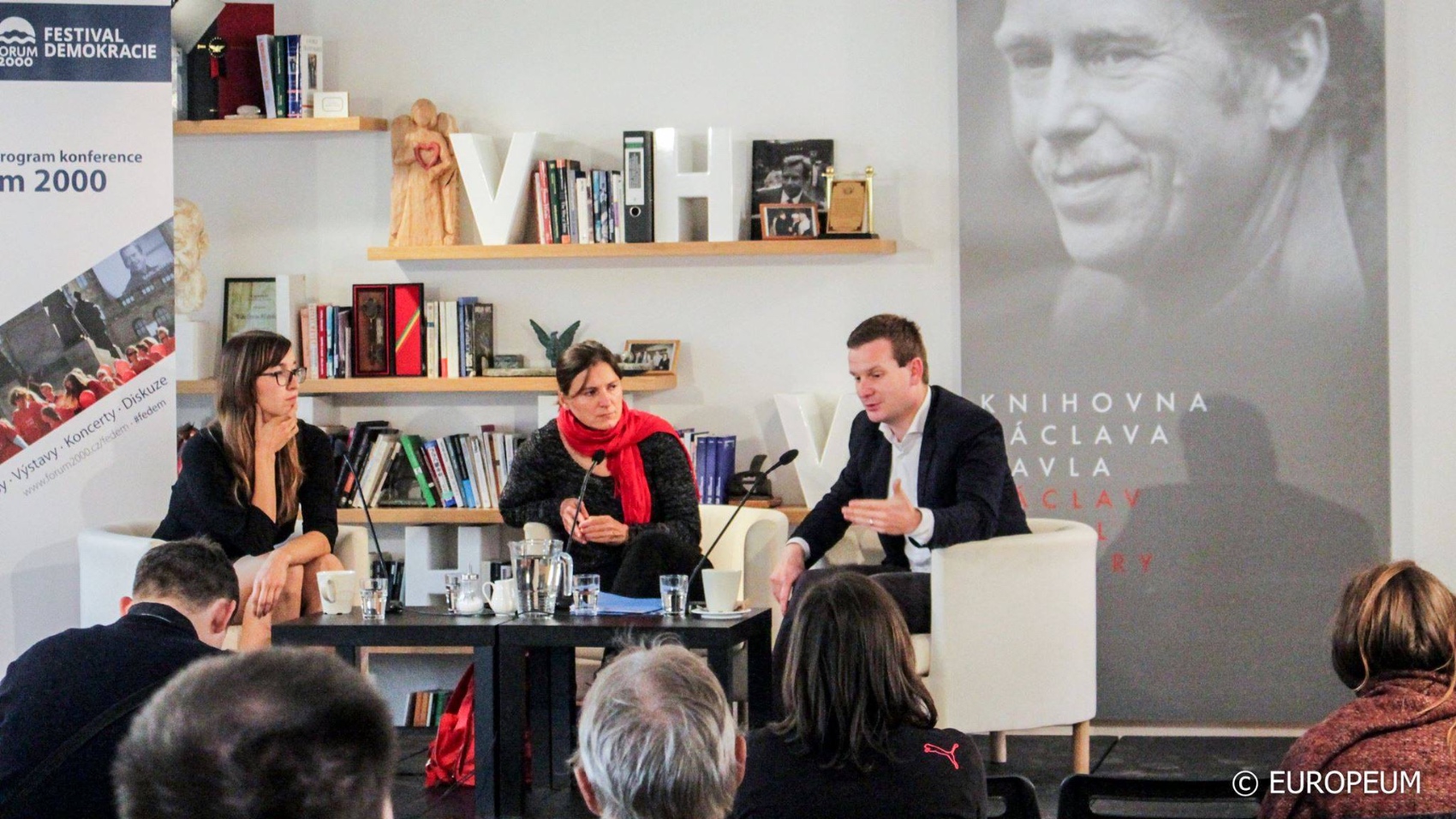
The Festival of Democracy and the VHL present debates:
- Where: Václav Havel Library, Ostrovní 13, Prague 110 00
- When: October 9, 2018, 10:00 – 21:00
The Festival of Democracy takes place as an accompanying programme to the Forum 2000 conference. At the Václav Havel Library it is presenting discussions on the value of intergenerational relationships in contemporary society, a round table with journalists and a debate on whether it isn’t time for the first female Czech president.
10.00 – 12.00
Intergenerational Relationships in Contemporary Society
Each generation differentiates itself from the previous one in some way, leading to clashes and misunderstandings. Throw in accelerated societal development and things are even worse. Can the generations still understand one another at all? Do they need one another? Are they still an inspiration to each other as used to be the case? What is the image of seniors in today’s society and, on the other hand, how do seniors view today’s society? What mutual prejudices prevail in society, how do they arise and what is their outcome?
Confirmed participants: Tereza Komárková, director and programme chief of the Duhový tandem association, Zdeněk Svoboda, director of the foundation Lepší senior, Michaela Stachová, director of the Krása pomoci foundation, and Marcela Nevšímalová, founder and director of the Moje velké přání foundation.
In cooperation with Forum 2000 and the organisation Duhový tandem.
16.00 – 17.30
Media Round Table
A discussion on topical political, economic and social issues with journalists and commentators from a variety of media organisations. A panel of foreign journalists and correspondents will discuss “post-truth” media outlets, disinformation and social media.
PANEL DISCUSSION: Natalia Churikova, Managing Editor, RFE/RL, Ukrainian Service, Daniel Anýž, Journalist, Hospodářské noviny and Aktuálně.cz, Nedim Dervisbegovic, Multimedia Producer, Balkan Service, RFE/RL, Bosnia and Herzegovina, Todd Nesbitt, Chair of the Department of Communication and Mass Media at UNYP
Moderator: Daniela Retková, Special Programs Coordinator, DOX Centre for Contemporary Art, Czech Republic (conf.)
In cooperation with Forum 2000 and the DOX Centre for Contemporary Art.
18.00 – 20.00
Time for the First Female Czech President
Almost a century after women received suffrage is it time for the first female Czech president? Why have we never had a female head of state? Do women face barriers in politics? What can we do to ensure that more women stand in future presidential elections? The equality of women and men in political decision-making is an integral element of democratic values and a democratic society. Let’s discuss it together.
Confirmed participants: Michal Horáček, candidate in the 2018 presidential elections, Veronika Šprincová, director of Fórum 50 %. Other speakers are to be confirmed.
Please register at the email address mottlova@padesatprocent.cz or by calling 774 411 151.
In cooperation with Forum 2000, Fórum 50 % and the Czech Women’s Lobby.
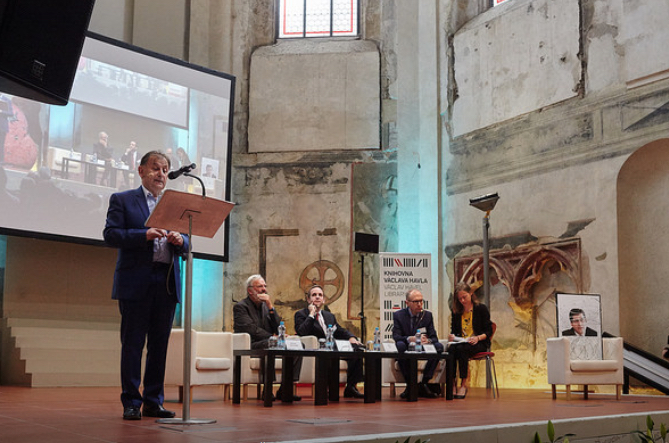
Václav Havel Human Rights Prize 2018
- Where: Prague Crossroads, Zlatá 1, Prague
- When: October 10, 2018, 12:30 – 19:30
The sixth edition of the international conference in honour of the winner of the Václav Havel Human Rights Prize, which is bestowed by the Václav Havel Library, the Parliamentary Assembly of the Council of Europe and the Charter 77 Foundation.
In three panels – a discussion with the prize’s winner and two finalists; the Evil Around Us; and the Evil Among Us – the conference The Unbearable Lightness of Evil will explore the neglect of human rights and growing intolerance, prejudices and xenophobia not only in authoritarian states but also in a number of Western democratic societies.
The conference will be attended by politician and women’s rights advocate Edipcia Dubón (Nicaragua), human rights advocate and political activist Mahienour El-Massry (Egypt), MEP and psychologist Zsuzsanna Szelényi (Hungary), historian and journalist Adam Michnik (Poland), co-founder and director of the organisation People in Need Šimon Pánek and other noteworthy guests.
For a detailed programme and registration form go to: goo.gl/DBBY7F
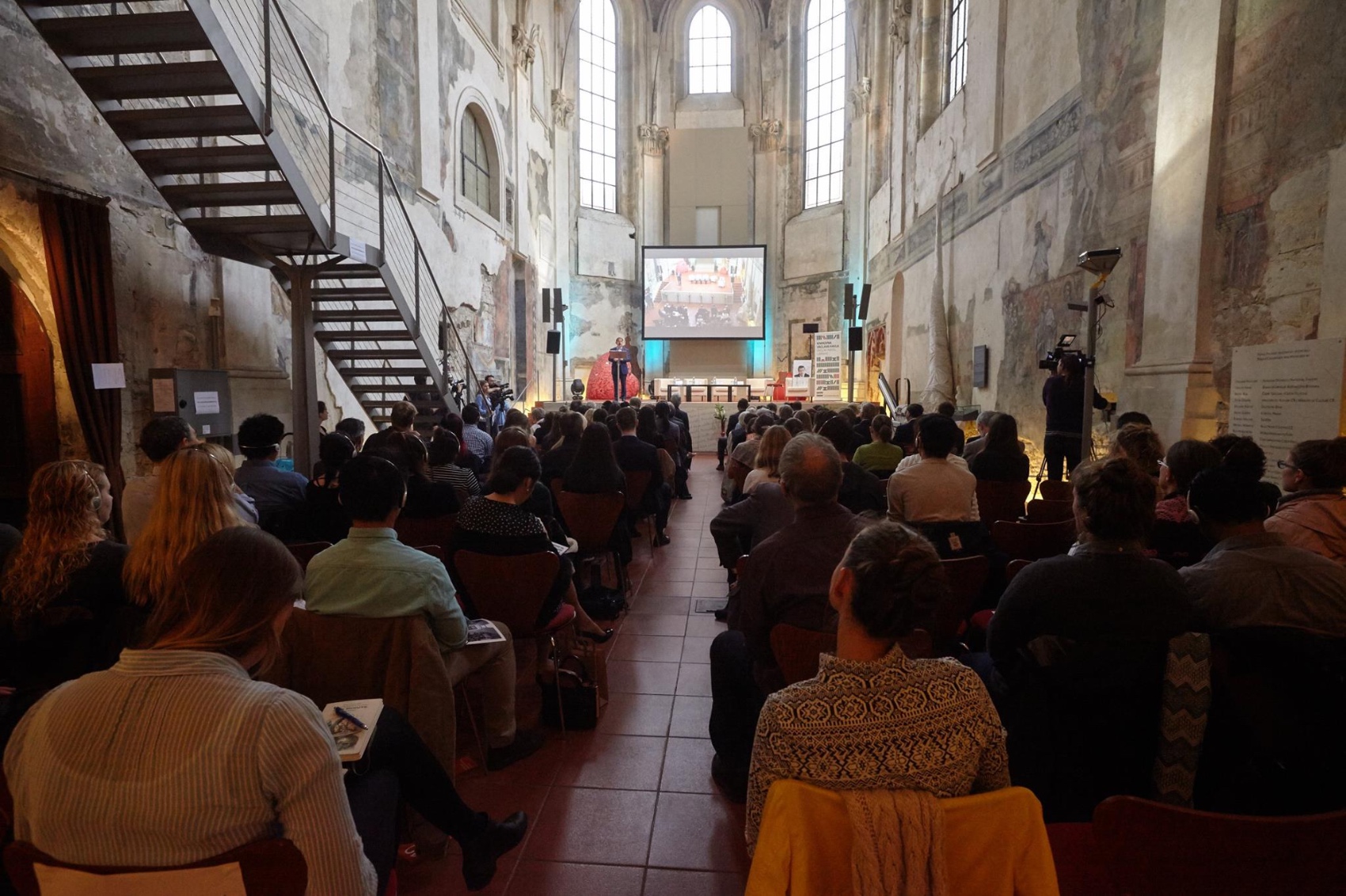
Gala Concert: A Tribute to the Brave
- Where: Prague Crossroads, Zlatá 1, Prague
- When: October 10, 2018, 19:30 – 22:00
This concert held on the occasion of the presentation of the Václav Havel Prize is also an expression of respect to those who have faced or are today forced to face injustices of any kind. The works of Bohuslav Martinů, Pavel Haas, Gideon Klein and other composers persecuted by the Nazi or communist regimes will be performed by leading musicians. During part of the concert the stage and audience in Prague will be connected to Bratislava via high-speed internet.
In cooperation with the Faculty of Music and Dance at the Academy of Performing Arts in Prague and the CESNET association.
Admission to the concert is free on the basis of registration until capacity has been met. For a detailed programme and registration form go to: goo.gl/dYaE7T
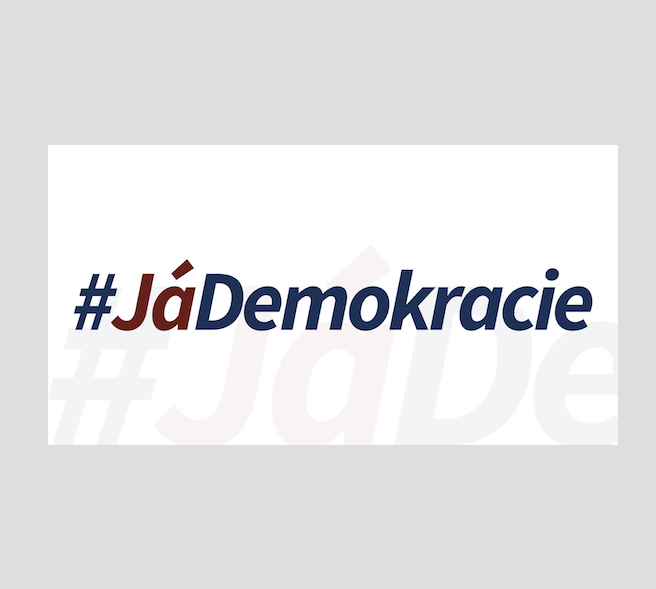
The Festival of Democracy and the VHL present debates:
- Where: Václav Havel Library, Ostrovní 13, Prague 110 00
- When: October 10, 2018, 11:00 – 21:00
The Festival of Democracy takes place as an accompanying programme to the Forum 2000 conference. At the Václav Havel Library it presents discussions on what freedom and democracy mean for young people and the position of the media in Central Europe.
11.00 – 13.00
#IDemocracy: What Do Democracy and Freedom Mean for Young People?
Freedom and democracy – short words we hear, read and use every day. But what exactly do they mean to us? We invited secondary school students, in other words young people who will soon become involved in public life as voters, to submit short videos on the subject within the competition #IDemocracy. We will watch the winning video prior to a debate exploring the place that democracy and freedom hold in the values of young people.
Chaired by Respekt journalist Andrea Procházková
Confirmed participants: Václav Kříž, former chairman of Mladí občané, Johanna Nejedlová, cofounder of Konsent. Other speakers are to be confirmed.
In cooperation with Forum 2000.
18.00 – 20.00
The Freedom of Public Service Media in Central Europe
The position of public service media organisations in Central Europe is getting worse and worse. Can their freedom and independence be maintained in a milieu of strong authoritarian governments? How can the authorities’ temptation to take total control of the public sphere be resisted?
Chaired by David Smoljak, journalist and coordinator of Svobodu médiím!
Confirmed participants: Adam Černý, journalist and chairman of the Czech Syndicate of Journalists, Martin Vadas, director of FITES, Daniel Raus, former editor-in-chief of Czech Radio, Vlastimil Venclík, member of the Czech Television Council, and Janek Kroupa, investigative reporter.
In cooperation with Forum 2000 and the organisation Svobodu médiím!
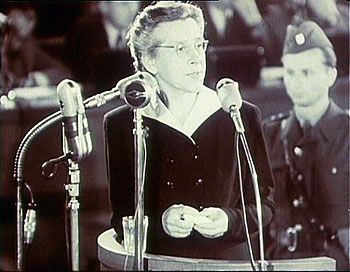
The Truth as the Supreme Authority of Conscience
- Where: Václav Havel Library, Ostrovní 13, Prague 110 00
- When: October 11, 2018, 19:00 – 21:00
Resistance in the work of Milada Horáková
Film evening with a guest.
An exceptional woman who did not bow down to the power of any regime. Face to face with persecution and death, she managed to stand up for her principles.
The documentary Případ Dr. Horáková (The Case of Dr. Horáková) (1990, 80 min.) contains authentic footage and recalls her show trial and final days. After the screening the historian Professor Dana Musilová will place Milada Horáková’s work in a new light and discuss her life’s work and service.
Second evening on the theme “Famous Evangelists: Masaryk, Horáková, Palach” taking place in connection with the centenary of the Evangelical Church of Czech Brethren.
Czech Radio journalist Magdaléna Trusinová will moderate.
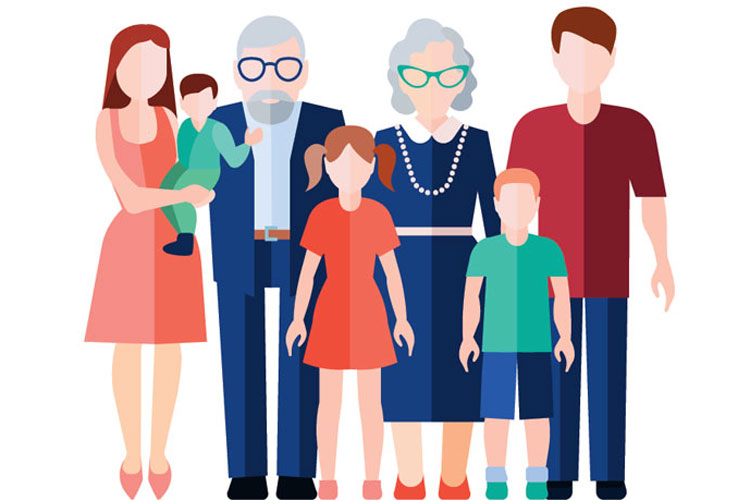
The Sandwich Generation: Finding a Balance Between Work and Family Life
- Where: Václav Havel Library, Ostrovní 13, Prague 110 00
- When: October 12, 2018, 19:00 – 21:00
Up to a quarter of Czechs belong to the so-called sandwich generation, defined as caring simultaneously for both minors and older parents. The vast majority of those concerned are woman who also have fulltime jobs. The sandwich generation face a great number of challenges and problems, as taking care of two generations is demanding in emotional, time and financial terms. With couples delaying parenthood and people living longer, it is a subject that needs to be addressed in discussions of family policy, modernisation of the labour market and healthcare.
Come listen, debate and share your experiences of the situation in the Czech Republic. The discussion will focus on how to create a strategy that will reflect the needs not only of children and seniors but those who look after them, which models have proven successful abroad and how they can be implemented in local conditions.
Confirmed participants: Danuše Nerudová, rector of Mendel University in Brno, Markéta Pekarová Adamová, MP (TOP 09), Walburga Lerchenfeld, politician from Germany’s CSU, Doris Schulz, MP from Austria’s OVP.
Chaired by Lucie Tungul, political scientist and analyst with the TOPAZ institute of politics.
Coorganised byTOPAZ and the Václav Havel Library.
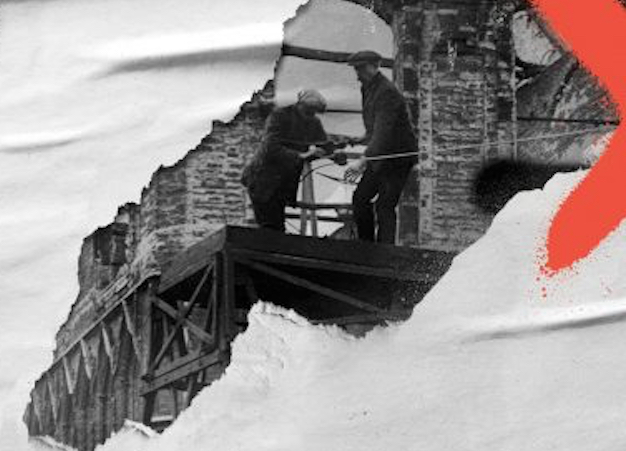
After the Great War: European remembrance 1918–1923
- Where: Václav Havel Library, Ostrovní 13, Prague 110 00
- When: October 15, 2018, 19:00 – 21:00
The creation of New Europe in 1918–1923 was a complicated and not always peaceful process. The instability and erosion of the newly built order contributed to the outbreak of the Second World War. One hundred years after the end of the Great War, European Network Remembrance and Solidarity in cooperation with historians from over a dozen countries have prepared an outdoor exhibition, which starts its European tour in Prague on 15 October.
Prof. Attila Pok (Hungary), Prof. Jan Rydel (Poland), Dr. Oldřich Tůma (Czech Republic) will be talking about the attempt to synthesize national memories and about the search for a common transnational narrative concerning the difficult beginning of New Europe. The debate will be moderated by the Vaclav Havel Library director, Michael Žantovský.
Translation into Czech will be provided.
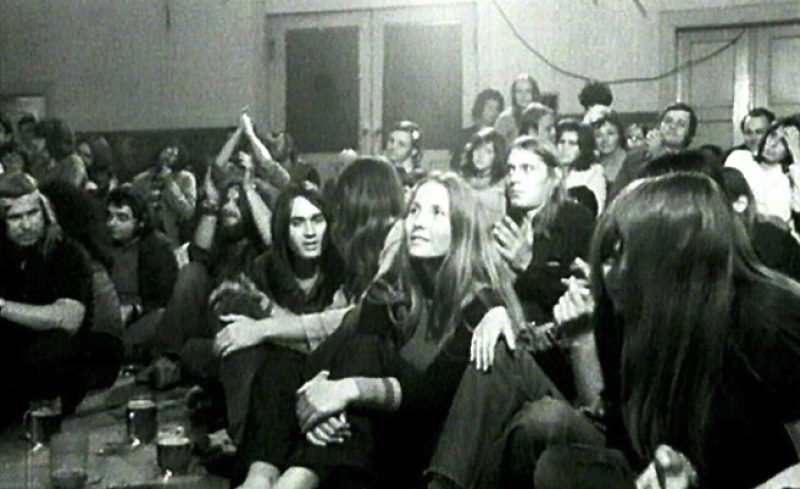
From Long Hairs to the Underground: Czechoslovakia 1970–1975
- Where: Václav Havel Library, Ostrovní 13, Prague 110 00
- When: October 16, 2018, 10:00 – 14:00
The fourth edition of this international conference maps a crucial period in the Czech underground. At the end of 1969 virtually nobody would have believed that just five years later there would be a sizable underground throughout the Czech regions, what’s more with its own “programme”.
The ever more psychedelic Plastic People of the Universe, as a professional group under the artistic “supervision” of Ivan Martin Jirous, known as Magor, were still appearing until May 1970. However, two years later they finally came into inevitable conflict with the normalisation powers, culminating in mass purges across the community. Magor himself found himself in a Communist jail for the first time (from 28 July 1973 until 31 May 1974) and “his” Plastics made what was in effect their final public appearance on 1 December 1973. Only invited audiences were able to attend further concerts, risking trouble with the police. This was seen in full effect in Rudolfov on 30 March 1974 when brutal and shocking violence was used against young people who had gathered for a (never played) Plastics and DG 307 concert. It was no coincidence that not long afterwards Jirous penned one of his key texts, Report on the Third Musical Revival (February 1975), which not only “defined” the Czech underground but also described how things then stood. The first half of the 1970s saw not only “notorious” underground events, such as the First Festival of the “Second” Culture in Postupice (1 September 1974) but also a rich and varied sub-cultural life in northern Bohemia and elsewhere.
The period in question is also inextricably linked to the emergence of artists of the calibre of Pavel Zajíček and the, today unfairly downplayed, influence of Milan Knížák in shaping the (proto)underground. Knížák reacted very critically to Jirous’s Report but was otherwise accepted enthusiastically in the non-conformist world.
These and other subjects will be the focus of the conference, at which speakers will include Barbora Bothová, Jan Blüml, Jan Cholínský, Ladislav Kudrna, Martin Machovec, Petr Placák, František Stárek Čuňas, Michal Stehlík, Martin Tharp, Martin Valenta and Petra Veselá.
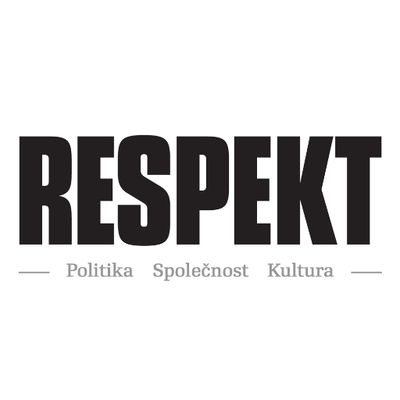
Debate with Respekt
- Where: Václav Havel Library, Ostrovní 13, Prague 110 00
- When: October 16, 2018, 19:00 – 21:00
Discussion with Respekt editors and their guests on a topical issue. More information will be posted at least one week before the event at www.vaclavhavel-library.org
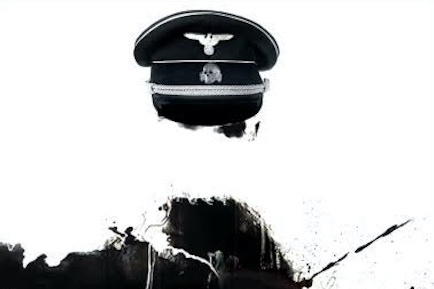
The Case of Josef Mengele
- Where: Václav Havel Library, Ostrovní 13, Prague 110 00
- When: October 18, 2018, 19:00 – 21:00
1949: Josef Mengele arrives in Argentina. Disguised and under various pseudonyms, Auschwitz’s “Angel of Death” attempts to start a new life in Buenos Aires. Peron’s Argentina is hospitable to former Nazis and it seems that the whole world wishes to forget the crimes of WWII. However, the hunt for war criminals is gaining momentum and Mengele is forced to flee to Paraguay and later Brazil. He changes his identity, hiding places and locations and, consumed by disgrace, finds no rest until his mysterious death on a beach in 1979. How is it possible that this top Nazi managed to evade capture for 30 years? How come Nazi-hunting agents didn’t succeed in capturing Mengele? Which secret services helped him?
Olivier Guez is a French writer and journalist. His novel The Disappearance of Josef Mengele, a gripping almost crime novel style exploration of the post-war life of the infamous “Angel of Death”, received the prestigious Prix Renaudot and is now coming out in a Czech translation by Zdeněk Huml on the Garamond imprint.
The book will be presented as part of the French Literary Autumn. Alongside Olivier Guez, Michal Šimůnek, a historian at the Institute of Contemporary History at the Academy of Sciences, will speak. Denisa Novotná will chair the discussion.
The evening will take place in French with simultaneous interpretation.
Organised by the Václav Havel Library in cooperation with the French Institute.
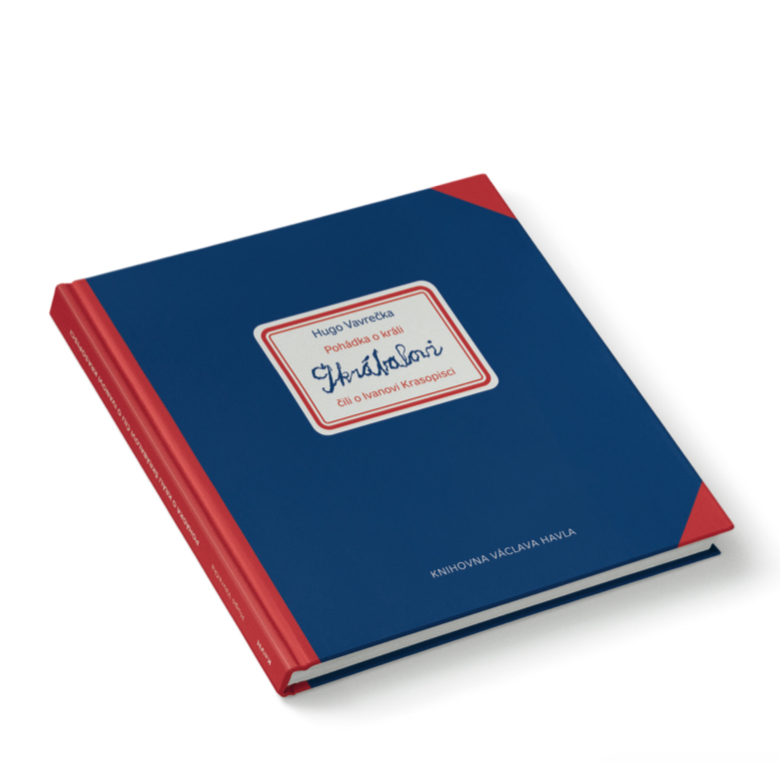
King Škrábal, or Ivan Krasopicec
- Where: Lucerna Palace rooftop, Štěpánská 61, Prague 1
- When: October 18, 2018, 19:00 – 21:00
In March 1945 Hugo Vavrečka wrote his for grandson Ivan M. Havel PohádkaO králi Škrábalovi čili Ivanovi krasopisci(A Fairy Tale About KingŠkrábal, or Ivan Krasopicec). Soon afterwards the text disappeared in the swirl of post-war events and only now has it reached its intended reader, over 70 years later, in connection with celebrations of Ivan M. Havel’s 80thbirthday.
The book will be presented, and congratulations conveyed, by Jana Wohlmuth Markupová, who rediscovered the book in the Baťaarchive in Zlín and prepared the new edition, illustrator Jan Laštovička, editor Pavel Hájek and many others.
How to reach the roof: find the Střecha Lucerny bell opposite the entrance to Lucerna’s Grand Hall; after being buzzed in, take the paternoster to the fourth floor and proceed on foot to the fifth.
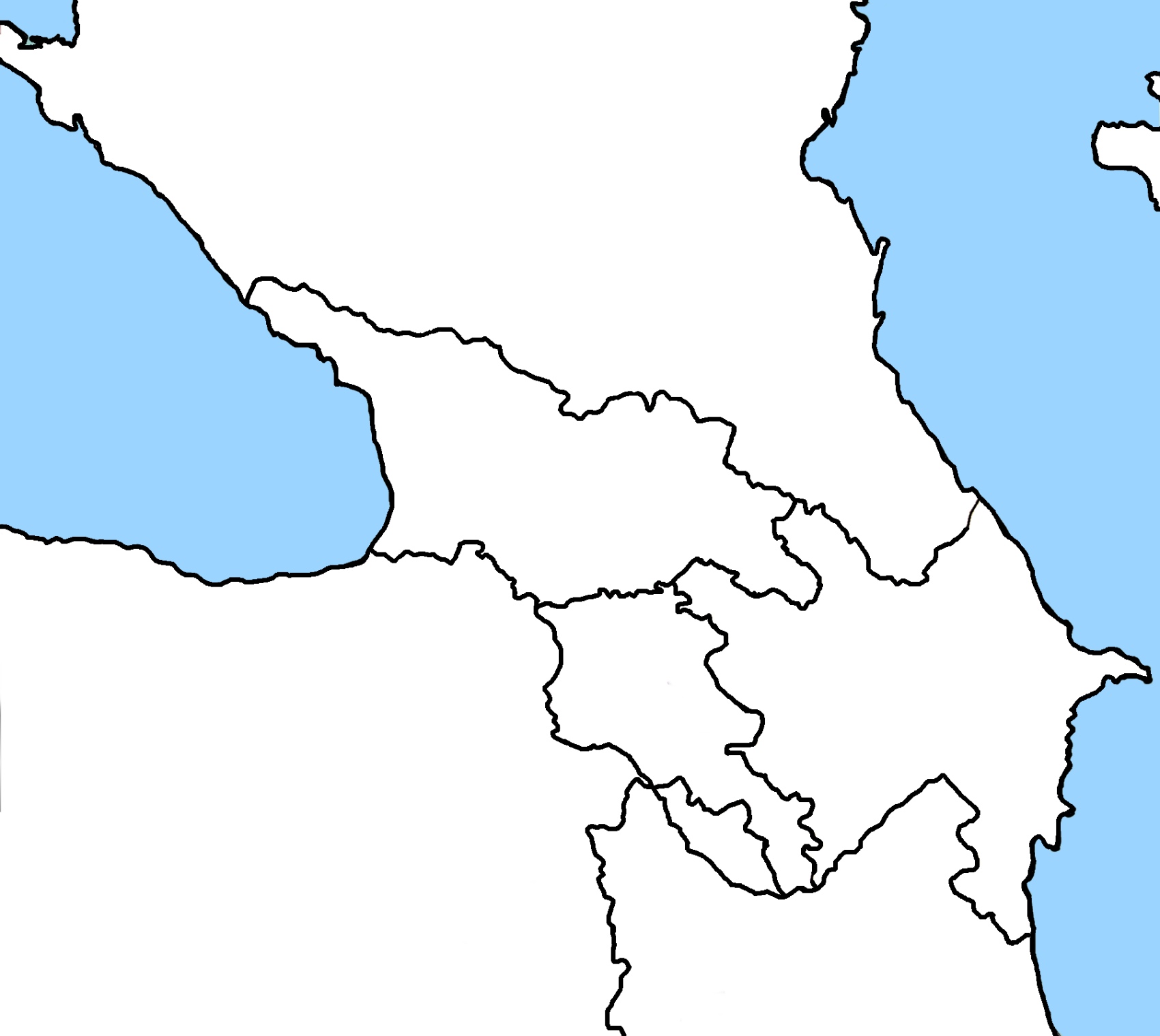
From Hopeful to Hopeless or from Hopeless to Hopeful. Democratic Transition in the Caucasus
- Where: Václav Havel Library, Ostrovní 13, Prague 110 00
- When: October 22, 2018, 19:00 – 21:00
Armenia, Azerbaijan and Georgia are three countries bound together by geography but with very little else in common. Armenia’s velvet revolution in April has catapulted the country from kleptocracy onto the road to democracy. All eyes are on the charismatic new Prime Minister Nikol Pashinyan and his new government as they translate revolutionary expectation into realistic policy. Armenia can do worse than look to its northern neighbour, Georgia to understand the difficulties ahead. Fifteen years have passed since its Rose revolution and despite making strides in accountably, transparency and democracy the momentum has stalled. As Georgians go to the polls in October to elect a new president the country’s future is far from certain. Meanwhile there seems to be little hope for change in authoritarian Azerbaijan whose repressive government is showing little sign of loosening its grip. Yet as Armenia has shown, change can happen at the most unexpected moments.
Join our expert panel for a discussion on the situation in their own countries and their thoughts on how events in Armenia will reverberate around the region. Will it lead to wider change? What will it mean for relations with Azerbaijan? Is Georgia no longer the poster child of change in the Caucasus?
From Armenia, Mikayel Zolyan, programme coordinator and research analysist at the Yerevan Press Club. From Georgia, Tinatin Khidasheli, former Minister for Defence and security expert. From Azerbaijan, Arzu Geybulla, a freelance writer currently living in exile in Turkey, expert on human rights and democracy in the country and one of the BBC’s top 100 Women changemakers.
Co-organised by Prague Civil Society Centre and Václav Havel Library.
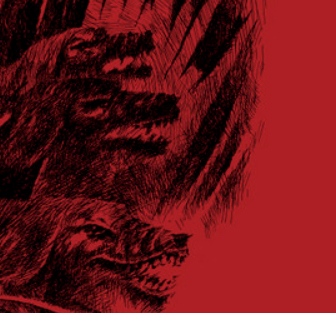
Poets of Moravia
- Where: Václav Havel Library, Ostrovní 13, Prague 110 00
- When: October 23, 2018, 19:00 – 21:00
An evening of readings specially put together for the VHL by Olomouc prose author, visual artist and drama therapist Milan Valenta and his friends – poets from greater and lesser Haná – Ruda B. Beran, Miroslav Demel and Michal Růžička.
These poetic rebels of Moravian villages and towns create original, idiosyncratic work and are connected by the curious fact that the party and government banned them forever right before the 1989 revolution.
The writers’ texts will be accompanied by original music by the Moravian folk rock group Střemkoš.
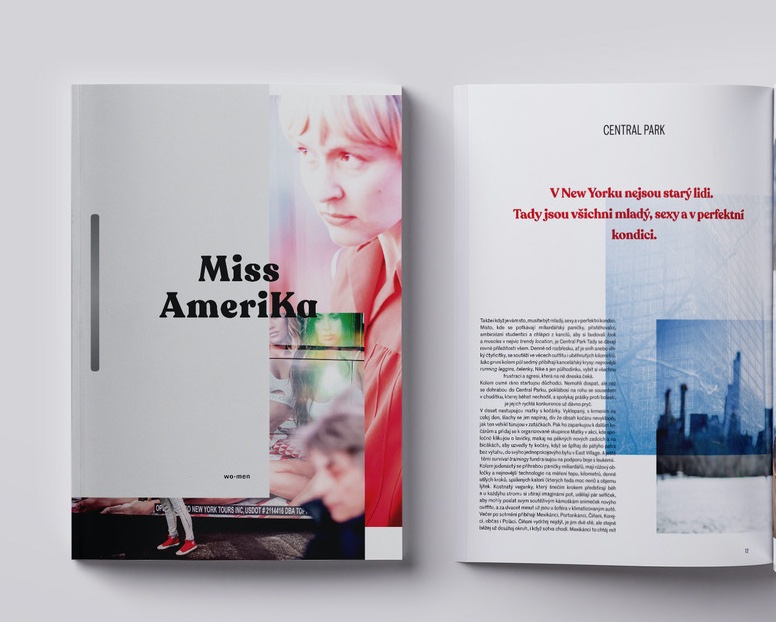
Miřenka Čechová: Miss AmeriKa
- Where: Václav Havel Library, Ostrovní 13, Prague 110 00
- When: October 24, 2018, 19:00 – 21:00
The book Miss AmeriKa is a fictitious document centred on the Eastern European illegal alien McKenzie Tomski that sarcastically depicts her experiences of New York, its inhabitants and trends and her own journey. Miřenka Čechová wrote the raw short stories during an artistic residence she spent in the Big Apple. Inspired by the city, fascinated by its people and their stories and overwhelmed by opportunities and absurdities, she delivers an uncompromisingly candid report about the state of the world through the eyes of McKenzie Tomski. Čechová’s blonde wig wearing alter ego isn’t afraid to demolish US clichés or hyper-correctness but at the same time follows her American dream of “making it someday”.
The performer Miřenka Čechová will present her book in conversation with Zdenka Součková, director of the American Spring festival.
Co-organised by the Václav Havel Library and Echoes of the American Spring Festival.
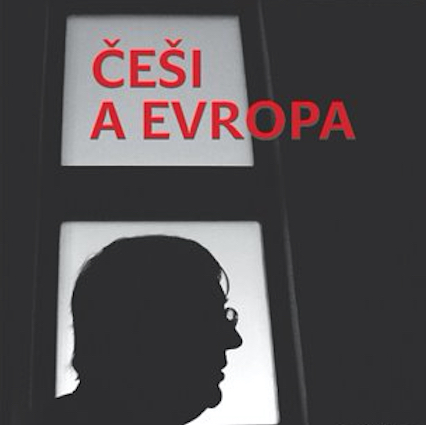
Ladislav Hejdánek: The Czechs and Europe
- Where: Václav Havel Library, Ostrovní 13, Prague 110 00
- When: October 25, 2018, 19:00 – 21:00
The philosopher and Charter 77 spokesman Ladislav Hejdánek will address pressing topical subjects in his new book. These include disturbing “mob minds” succumbing to pseudo scientists, the threats posed by nationalism and the role of the nation.
The book will be introduced by its editor Jan Hron, while Martin Palouš and Jiří Pehe will also speak.
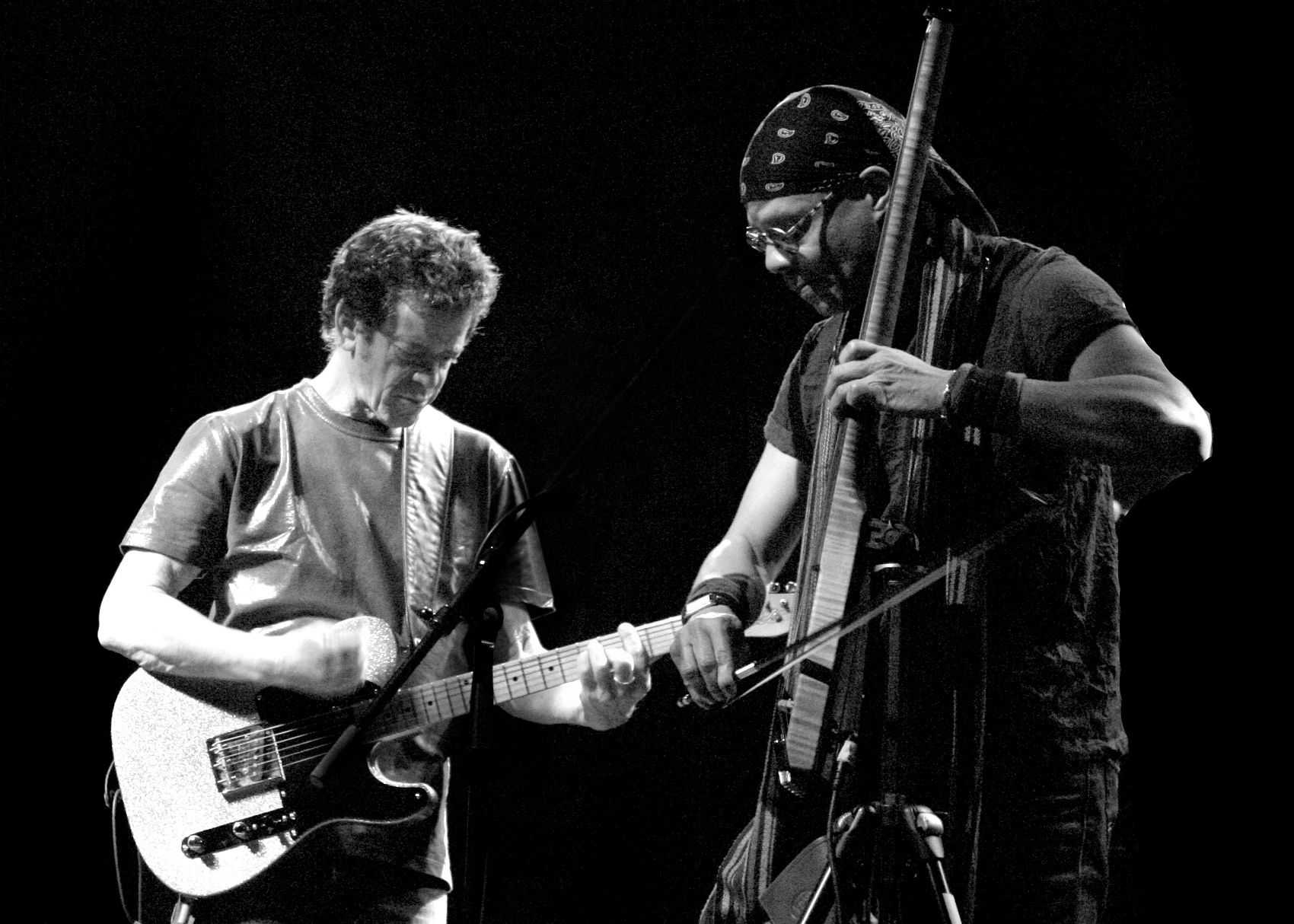
Recollections of Lou Reed – Fernando Saunders Concert
- Where: Kampus Hybernská, Hybernská 4, Praha — Nové Město
- When: October 26, 2018, 20:00 – 22:00
Appearance by US singer, composer producer and virtuoso bass guitar player Fernando Saunders. For over 30 years he stood side by side with Lou Reed, founder of the famous band The Velvet Underground, who died five years ago this year. Saunders was also with Reed during a concert at the White House requested by Václav Havel.
Free admission.
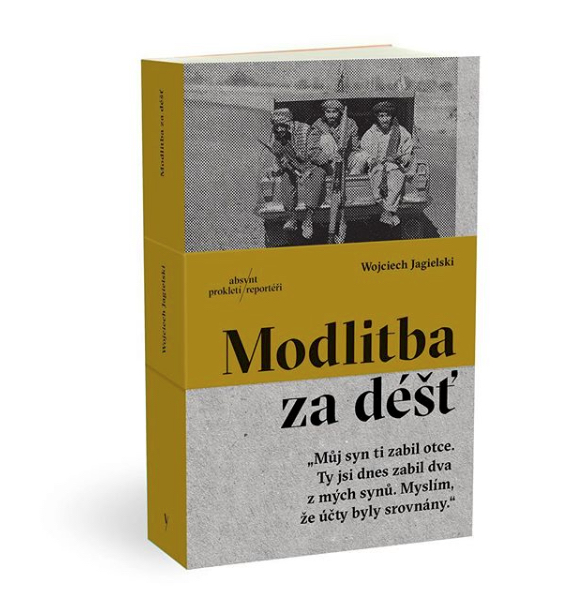
Evening with Polish Reporters: An Afghan Prayer for Rain
- Where: Václav Havel Library, Ostrovní 13, Prague 110 00
- When: October 30, 2018, 19:00 – 21:00
A state whose territory was part of ancient empires as early as 800 B.C. is today associated with one thing: the Taliban. Polish reporterWojciech Jagielski and young journalist Fatima Rahimi, whose family were forced to flee Afghanistan’s Herat and who currently lives in the Czech Republic, will discuss a country where complicated armed conflicts have been going on for decades.
Jagielski has visited Afghanistan several times, giving rise to the bookPraying for Rain, which focuses on the period between spring 1992 and autumn 2001 and explores both the Afghan regime and the plans and interests of world powers. In 2003 it was nominated for the Nike literary prize. This year it is being released by the Absynt publishing house in a Czech translation by Michala Benešová.
In a discussion the acclaimed and experienced Polish reporter’s viewpoint will be complemented by the experiences of Fatima Rahimi, including dramatic escape, six-month journey into the unknown, years in refugee camps, life and study in the Czech Republic, as well as her view of the current situation in Afghanistan.
Polish Studies expert and translator Michala Benešová will moderate.
The evening takes place as part of Evenings with Polish Reporters, a project of the Polish Institute in Prague and the Václav Havel Library.
Havel Channel
Havel Channel je audiovizuální projekt Knihovny Václava Havla, jehož cílem je šířit myšlenkový, literární a politický odkaz Václava Havla, bez ohledu na vzdálenost, zeměpisné hranice či nouzové stavy. Jeho páteř tvoří debaty, vzdělávací projekty a rozhovory. Velký prostor je věnován též konferencím, autorským čtením, záznamům divadelních inscenací a koncertům. Audiovizuální projekt Knihovny Václava Havla Havel Channel se uskutečňuje díky laskavé podpoře Karel Komárek Family Foundation.
Publications / E-shop
The central focus of the Library’s publishing programme is the life and work of Václav Havel, his family and close collaborators and friends. For clarity, the programme is divided into six series: Václav Havel Library Notebooks, Václav Havel Library Editions, Student Line, Talks from Lány, Václav Havel Documents, Works of Pavel Juráček and Václav Havel Library Conferences. Titles that cannot be incorporated into any of the given series but which are nonetheless important for the Library’s publishing activities are issued independently, outside the series framework.
Diary IV. 1974–1989
399,- CZK
Foolish Writing
299,- CZK
Havel to the Castle
149,- CZK
Kilián Nedory
199,- CZK
Case for a Novice Headsman
199,- CZK
I am not sad. Audience & Vernissage
129,- CZK
To the Castle and Back
249,- CZK
I am the Gypsy Baron
299,- CZK
Conferences & prizes
Václav Havel European Dialogues
The Václav Havel European Dialogues is an international project that aims to initiate and stimulate a discussion about issues determining the direction of contemporary Europe while referring to the European spiritual legacy of Václav Havel. This idea takes its main inspiration from Václav Havel’s essay “Power of the Powerless”. More than other similarly focused projects, the Václav Havel European Dialogues aims to offer the “powerless” a platform to express themselves and in so doing to boost their position within Europe.
The Václav Havel European Dialogues is planned as a long-term project and involves cooperation with other organisations in various European cities. Individual meetings, which take the form of a conference, are targeted primarily at secondary and third-level students, as well as specialists and members of the public interested in European issues.
Prague 2022Olomouc Prague 2023PragueMnichov 2020Brussels 2020Prague 2019Brussels 2019Prague 2018Brussels 2018Europe at the Crossroads (e-book)Prague 2017Brussels 2017Prague 2016Brussels 2016Prague 2015Brussels 2015Brussels 2014Berlin 2014Prague 2014 - J. GauckBruges 2014Prague 2014
Václav Havel Human Rights Prize
The Václav Havel Human Rights Prize is awarded each year by the Parliamentary Assembly of the Council of Europe (PACE) in partnership with the Václav Havel Library and the Charta 77 Foundation to reward outstanding civil society action in the defence of human rights in Europe and beyond.
11th Year of the Prize (2023)10th Year of the Prize (2022)9th Year of the Prize (2021)8th Year of the Prize (2020)7th Year of the Prize (2019)6th Year of the Prize (2018)5th Year of the Prize (2017)4th Year of the Prize (2016)3rd Year of the Prize (2015)2nd Year of the Prize (2014)1st Year of the Prize (2013)History of the prize
Havel - Albright Transatlantic Dialogues
Since the first Václav Havel Transatlantic Dialogues at GLOBSEC and FORUM 2000 conferences last year, we have lost another stalwart advocate of the transatlantic bond and of the need to face threats to democracy and international order together on both sides of the Atlantic, the former US Secretary of State Madeleine Albright. In view of the close bond between Václav Havel and Madeleine Albright and, after Havel's death, between the Secretary and the Library, the Václav Havel Library, with the approval of Madeleine Albright's family, renamed and rebranded the program as The Havel-Albright Transatlantic Dialogues (HATD), after the two major figures with roots in Central Europe who have personified the bond. Together, Václav Havel and Madeleine Albright symbolize the transatlantic relationship and the fundamental values underpinning it perhaps better than any other two people in recent history. The upcoming Dialogues “The Indispensable Woman: The Legacy of Madeleine K. Albright”, at the FORUM 2000 conference on September 1, and at the “Havel and our Crisis” conference at Colby College, ME, on September 28, will thus become venues for a well-deserved tribute to the pair we all respected and admired.
Transatlantic Dialogues 2021Transatlantic Dialogues 2022HATD 2022 Prague
Václav Havel
Václav Havel
* 5. 10. 1936 Praha
† 18. 12. 2011 Hrádeček u Trutnova
- spisovatel a dramatik, publicista a filozof
- jeden z trojice prvních mluvčích Charty 77
- vůdčí autorita československé společenské změny v listopadu 1989
- poslední prezident Československa a
- první prezident České republiky
- celoživotní zastánce lidských práv a svobod doma i ve světě.
Educational projects
Archive / Documentation centre / Research projects
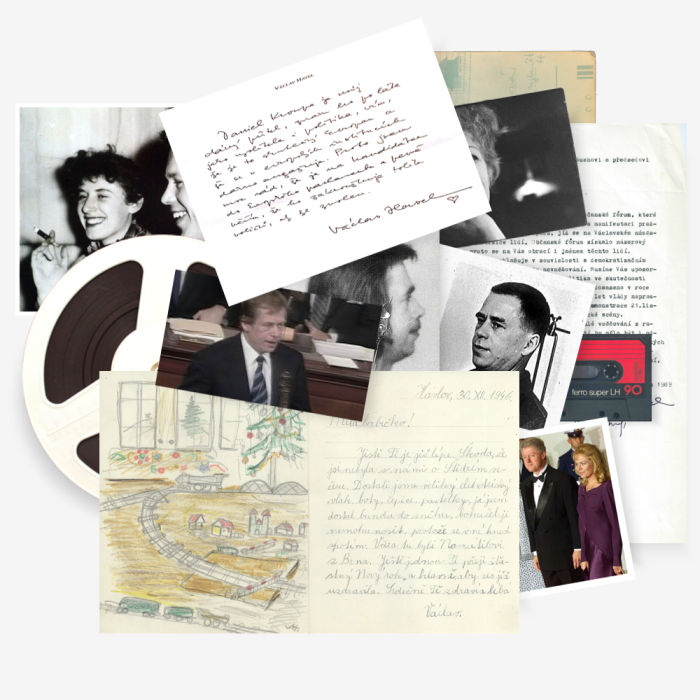
The Václav Havel Library is gradually gathering, digitizing, and making accessible written materials, photographs, sound recordings and other materials linked to the person of Václav Havel.
- 70973 records in total
- 27902 of events in the VH's life
- 2831 of VH's texts
- 2125 of photos
- 403of videos
- 568of audios
- 6604of letters
- 15101of texts about VH
- 8269 of books
- 40709of bibliography records
Access to the database of the VHL’s archives is free and possible after registering as a user. Accessing archival materials that exist in an unreadable form is only possible at the reading room of the Václav Havel Library, Ostrovní 13, 110 00 Prague 1, every Tuesday (except state holidays) from 9:00 to 17:00, or by prior appointment.
We will be glad to answer your queries at archiv@vaclavhavel-library.org.
Sign in (registered users only)
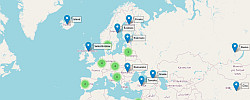
Havel in a nutshell
The virtual exhibition Václav Havel in a Nutshell places the life story of Václav Havel in the broader cultural and historic context in four chronologically distinct chapters with rich visual accompaniment. The exhibition is supplemented by the interactive map Flying the World with Václav Havel, which captures in physical form Havel’s global “footprint”.
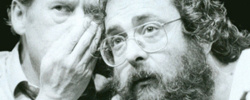
Vladimir Hanzel's revolution
Collage of recollections, images and sound recordings from Vladimír Hanzel, President Václav Havel’s personal secretary, bringing the feverish atmosphere of the Velvet Revolution to life.
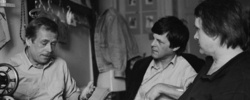
Václav Havel Interviews
A database of all accessible interviews given to print media outlets by the dramatist, writer and political activist Václav Havel between the 1960s and 1989. The resulting collection documents the extraordinary life story of an individual, as well as capturing a specific picture of modern Czechoslovak history at a time when being a free-thinker was more likely to lead to jail than an official public post.
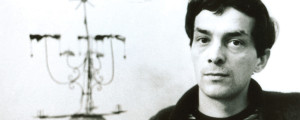
Pavel Juráček Archive
The Pavel Juráček Archive arose in February 2014 when his son Marek Juráček handed over six banana boxes and a typewriter case from his father’s estate to the Václav Havel Library. Thousands of pages of manuscripts, typescripts, photographs, documents and personal and official correspondence are gradually being classified and digitalised. The result of this work should be not only to map the life and work of one of the key figures of the New Wave of Czechoslovak film in the 1960s, but also to make his literary works accessible in the book series The Works of Pavel Juráček.
The aim of the Václav Havel Library is to ensure that Pavel Juráček finds a place in the broader cultural consciousness and to notionally build on the deep friendship he shared with Václav Havel. Soon after Juráček’s death in 1989 Havel said of him: “Pavel was a friend of mine whom I liked very much. He was one of the most sensitive and gentle people I have known – that’s why I cannot write more about him.”
All about Library
The Václav Havel Library works to preserve the legacy of Václav Havel, literary, theatrical and also political, in particular his struggle for freedom, democracy and the defence of human rights. It supports research and education on the life, values and times of Václav Havel as well as the enduring significance of his ideas for both the present and future.
The Václav Havel Library also strives to develop civil society and active civic life, serving as a platform for discussion on issues related to the support and defence of liberty and democracy, both in the Czech Republic and internationally.
The main aims of the Václav Havel Library include
- Organizing archival, archival-research, documentary, museum and library activities focused on the work of Vaclav Havel and documents or objects related to his activities, and carries out professional analysis of their influence on the life and self-reflection of society
- Serving, in a suitable manner, such as through exhibitions, the purpose of education and popularisation functions, thus presenting to the public the historical significance of the fight for human rights and freedoms in the totalitarian period and the formation of civil society during the establishment of democracy
- Organizing scientific research and publication activities in its areas of interest
Podpořte nás
We are well aware that freedom and democracy must be nurtured. Here at Ostrovní 13, but also on the audiovisual platform Havel Channel, we strive to do so through our own educational programmes, talks, discussion meetings, books, exhibitions, concerts, theatre performances. We honour Václav Havel's legacy and wish that the Library be a living organism and open to all. That is why our programme is free of charge for everyone. This would not be possible without regular financial support from our supporters. Become one of them...
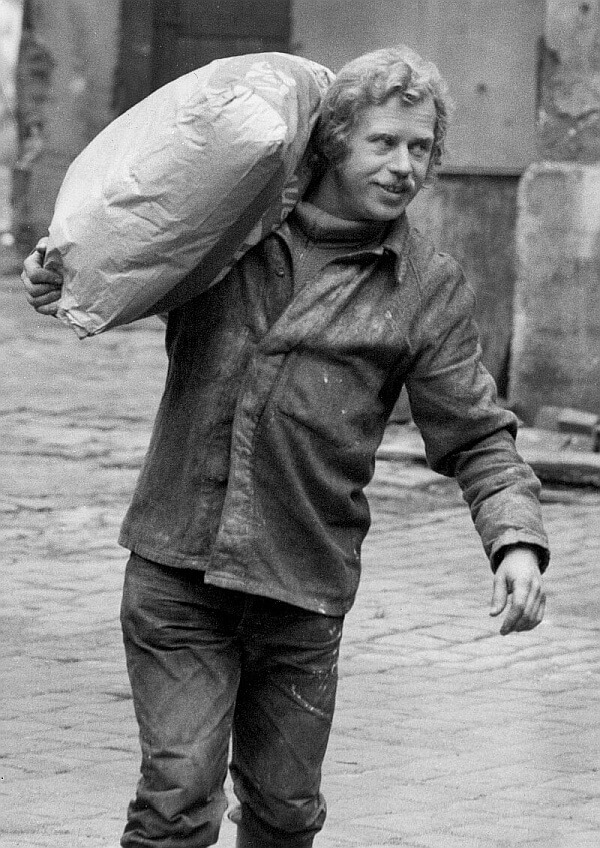
Support us with a financial donation
Does our work make sense to you and do you want to support the activities of the Vaclav Havel Library?
You can easily make a one-time payment by scanning the QR code.
Would you like to contribute regularly? Then we invite you to become a member of the Friends of the Vaclav Havel Library Club. What are the benefits of membership? Find out more.
Help us expand the archive
The Vaclav Havel Library manages an archive of writings, documents, photographs, video recordings and other materials related to the life and work of Vaclav Havel. This archive is predominantly in digital form. If you or someone close to you owns any original texts, correspondence, photographs, speeches or any other work by Vaclav Havel, we would be grateful if you could contact us.
You can donate in other ways too
Supporting a specific charitable or public benefit organization whose activities you appreciate or have been supporting for a long time is also possible through a will. This form of donation is quite common abroad, but in the Czech Republic this tradition is only just taking root.
Share information about us
The Vaclav Havel Library is open to media and promotional cooperation, mutual sharing of links, publishing our banners or information about our events.
For more information, please contact us.
Donations have their rules
At the Vaclav Havel Library, we uphold a transparent, responsible and ethical way of dealing with all those who contribute to fulfilling our purpose and implementing our strategy. Our code of ethics summarizes the basic rules of donations.
Get involved in volunteering
Would you like to get involved as a volunteer? That's great. We welcome anyone who wants to help our work.








